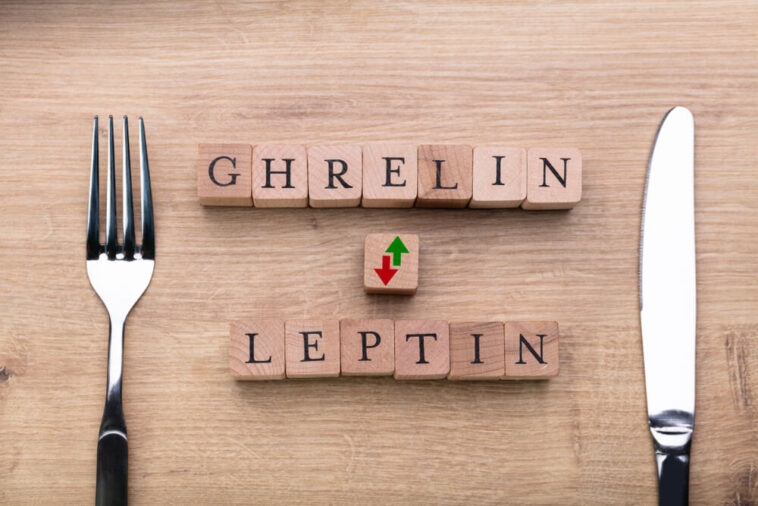Understanding hunger regulation and how it affects weight control requires an intimate understanding of the complex interactions between leptin and ghrelin. We explore the relationship between leptin & ghrelin in this in-depth study, illuminating their functions, interactions, and consequences for appetite regulation.
1. Leptin:
2. Ghrelin:
The “hunger hormone,” also known as ghrelin, is mostly made in the stomach and is important for controlling short-term appetite. Ghrelin levels increase before meals or while fasting, causing hunger and encouraging food intake. Ghrelin raises appetite while reducing energy expenditure through working on the hypothalamus and other areas of the brain. Upon eating, ghrelin levels drop, signaling fullness and preventing further eating.
3. Interplay between Leptin and Ghrelin:
Together, their both control hunger control and uphold energy balance. As a long-term regulator, leptin informs the brain about total energy storage, aiding in the overall regulation of appetite and satiety. The short-term regulator ghrelin, on the other hand, acts quickly in response to pressing energy demands and predominantly influences hunger levels.
4. Imbalances and their Implications:
Appetite regulation and weight management may be significantly impacted by imbalances in leptin & ghrelin signaling. The process of signaling satiety can be interfered with by leptin resistance, a condition in which the body does not react to leptin as it should. A high-fat diet, chronic inflammation, or hereditary factors might all contribute to this resistance. Reduced sensitivity to satiety signals caused by leptin resistance leads to increased food consumption and subsequent weight gain.
Changes in ghrelin levels can also affect appetite regulation. Stress, lack of sleep, and certain medical issues can throw off your body’s process for signaling hunger. This can cause you to eat more than you need.
5. Clinical Significance and Future Directions:
Regarding the treatment of obesity and eating disorders, understanding the interaction between leptin & ghrelin has important therapeutic ramifications. To control appetite and encourage weight loss, researchers are currently investigating pharmacological approaches that target leptin or ghrelin signaling. To attain successful treatment outcomes, it is important to recognize that hunger control is a complex process involving a network of hormones and brain areas. This calls for a holistic strategy.
Conclusion (Leptin and Ghrelin):
The two primary hormones that control appetite, leptin & ghrelin, cooperate to keep the body’s energy levels balanced. While ghrelin increases desire and encourages food intake, leptin communicates satiety and suppresses hunger. Leptin & ghrelin signaling imbalances can impair appetite control, which can result in overeating and weight gain. To successfully control appetite and address concerns connected to weight, it is essential to improve our understanding of how leptin & ghrelin interact.
Keep up with the latest news updates and trending topics at info Junkster. For nutrition and health related hot topics please click here.




